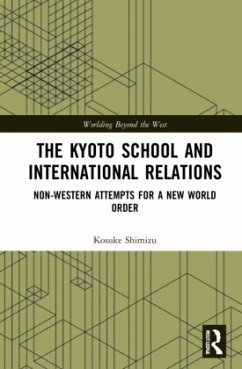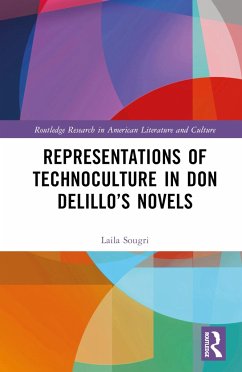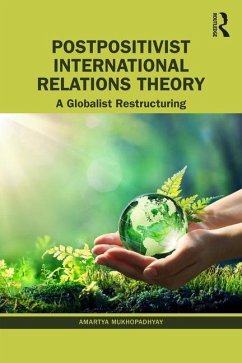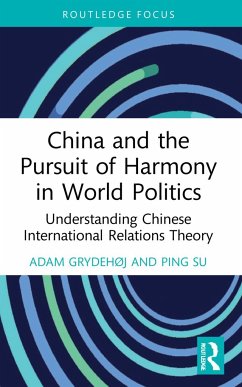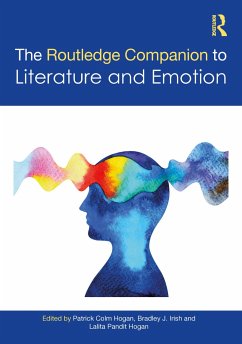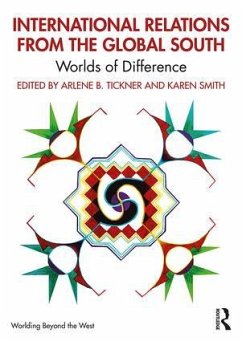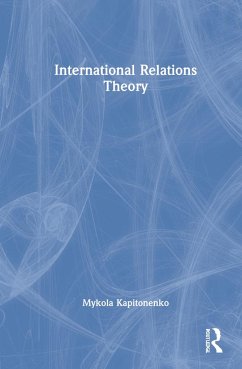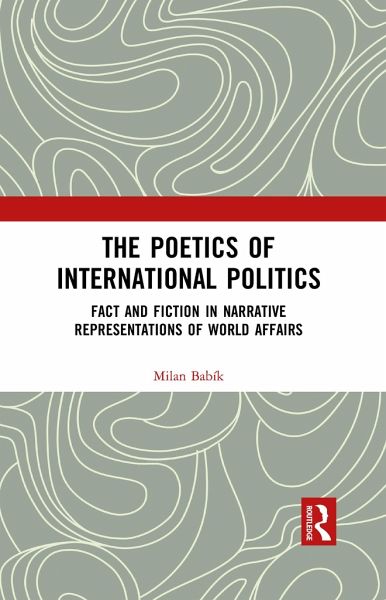
The Poetics of International Politics
Fact and Fiction in Narrative Representations of World Affairs
Versandkostenfrei!
Versandfertig in 6-10 Tagen
45,99 €
inkl. MwSt.
Weitere Ausgaben:

PAYBACK Punkte
23 °P sammeln!
A cutting-edge contribution to the aesthetic turn in international relations scholarship, this book exposes the role of poetic techniques in constituting the reality of international politics. It has two symmetrical goals: to illuminate the nonempirical fictions of factual international relations literature, and to highlight the real factual inspirations and implications of contemporary international relations fiction.Employing narrative theory developed by Hayden White, the author examines factual and fictional accounts of world affairs ranging from the anarchy narrative, central to mainstrea...
A cutting-edge contribution to the aesthetic turn in international relations scholarship, this book exposes the role of poetic techniques in constituting the reality of international politics. It has two symmetrical goals: to illuminate the nonempirical fictions of factual international relations literature, and to highlight the real factual inspirations and implications of contemporary international relations fiction.
Employing narrative theory developed by Hayden White, the author examines factual and fictional accounts of world affairs ranging from the anarchy narrative, central to mainstream international relations research, to novels by Don DeLillo and Milan Kundera. Chapters analyzing factual literature flesh out its unacknowledged inventions, while those dedicated to fiction explain its political roots and agenda. Throughout, the distinction between factual and fictional representations of international relations breaks down. Social-scientific narratives emerge as exercises in rhetoric: the art and politics of persuasion through language. Artistic narratives surface as real pedagogical lessons and exercises in political activism.
The volume challenges the autonomy of academic international relations as an exclusive purveyor of serious knowledge about world affairs and calls for active engagement with literary art. It will be of interest to scholars of International Relations, Political Theory, Historiography, Cultural Theory, and Literary Studies and Criticism.
Employing narrative theory developed by Hayden White, the author examines factual and fictional accounts of world affairs ranging from the anarchy narrative, central to mainstream international relations research, to novels by Don DeLillo and Milan Kundera. Chapters analyzing factual literature flesh out its unacknowledged inventions, while those dedicated to fiction explain its political roots and agenda. Throughout, the distinction between factual and fictional representations of international relations breaks down. Social-scientific narratives emerge as exercises in rhetoric: the art and politics of persuasion through language. Artistic narratives surface as real pedagogical lessons and exercises in political activism.
The volume challenges the autonomy of academic international relations as an exclusive purveyor of serious knowledge about world affairs and calls for active engagement with literary art. It will be of interest to scholars of International Relations, Political Theory, Historiography, Cultural Theory, and Literary Studies and Criticism.





